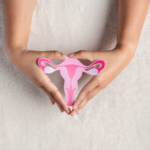
Preventive Measures for Vaginal Dryness in Menopause
Also known as atrophic vaginitis or vaginal atrophy, vaginal dryness is a common condition among women, especially those going through menopause. It occurs when the vagina tissues become thin, dry, and not well-moisturized, leading to discomfort, especially during sex.
Normally, the walls of the vagina stay lubricated with a thin layer of clear fluid. Your body releases estrogen hormone to maintain that fluid and keep the lining of the vagina healthy, thick, and elastic. If the estrogen levels drop, the amount of moisture available reduces, leading to vaginal dryness in menopause.
Vaginal Dryness Onset and Symptoms
A drop in estrogen levels may occur after menopause, but it can also happen during:
- Perimenopause (the years before menstrual periods stop for good)
- Childbirth and breastfeeding
- Radiation or chemotherapy treatment for cancer
- Surgical removal of the ovaries, and
- Anti-estrogen medications used to treat uterine fibroids
The prevalence of vaginal dryness increases with age and the advancing menopausal stage.
However, some people experience it even before menopause, and that could be due to a variety of reasons such as cigarette smoking, depression, high-stress levels, immune system disorders, and some cancer treatments.
The symptoms of vaginal dryness include:
- Less lubrication (dryness), burning, itching, and pain during sex
- Unusual vaginal discharge
- Spotting or bleeding
- Urinary tract infections
Lifestyle Changes to Potentially Reduce the Severity of Vaginal Dryness in Menopause
Luckily, there’s a lot you can adopt early on to potentially reduce the severity of vaginal dryness when you reach menopause. These lifestyle changes include:
Dietary Changes
Watching your diet years before you approach menopause can help boost estrogen levels and reduce vaginal dryness.
Soy products, such as soy milk, soybeans, and tofu, contain phytoestrogens that mimic the effect of estrogen on the body. Other foods that contain phytoestrogens include flaxseeds, sesame seeds, and legumes. Including omega-3 fatty acids found in oily fish like salmon, mackerel, and sardines can also help improve vaginal dryness.
Exercise
Have you heard of Kegel exercises? They’re pretty neat and a great way to fight vaginal dryness in menopause! You basically contract and relax the muscles down there, called the pelvic floor. Doing these exercises can actually improve the tone of those muscles and even increase blood flow to the vagina, which can be a real game-changer.
You can also try yoga. The exercise can do wonders for sexual function as it helps relieve stress, which can play a role in causing vaginal dryness.
Avoiding Irritants
Irritants such as douches, perfumed toilet paper or soaps, and some drugs, such as antihistamines, can further irritate vaginal dryness and shouldn’t be used by women suffering from its symptoms. As a rule of thumb, avoid any type of soap when it comes to washing your lady parts as it often dries out already delicate and sensitive skin.
Staying Sexually Active
By staying sexually active, you are essentially exercising and stimulating the vaginal tissues. This activity encourages the blood vessels in the area to dilate, bringing more oxygen and nutrients to the vaginal walls. As a result, the vaginal tissues become more responsive and better able to produce lubrication. Regular sexual activity can, therefore, act as a kind of “workout” for the vaginal tissues, keeping them in better condition and potentially reducing the severity of vaginal dryness.
Final Thoughts
Vaginal dryness is a common condition that affects many women, especially those who have gone through menopause. However, adopting various lifestyle changes, such as those discussed above, can potentially reduce the severity of vaginal dryness when you reach menopause.
Additionally, tracking your menstrual cycle can help you understand your unique patterns and detect unexpected changes, which can aid in family planning, pregnancy prevention, and general health. The Agenda period tracker can help you sync your life to your cycle so you can work with it, not against it. By adopting a healthy lifestyle and tracking your menstrual cycle, you can potentially reduce the severity of vaginal dryness in menopause and improve your overall health and well-being.

Author
Florence Esther is a content writer who started as a freelance writer working with content mills. She now works directly with businesses, helping them thrive online through content and digital marketing. LinkedIn profile: https://www.linkedin.com/in/florence-karimi-3374a058/





